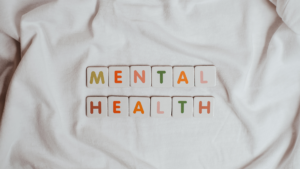In her 2024 TED Talk, Katrena Friel tells us that 85% of people have struggled with self-doubt at some point in their lives and 70% of them report battling with impostor syndrome. While self-doubt refers to a lack of confidence in one’s abilities, decisions, or worthiness, impostor syndrome is a psychological phenomenon (or experience) where individuals doubt their accomplishments and have a persistent fear of being exposed as a fraud, despite evidence of their competence. It involves a pervasive feeling of inadequacy, often attributing success to external factors like luck or timing rather than acknowledging personal ability. Unlike general self-doubt, impostor syndrome can lead to chronic stress, anxiety, and perfectionism as individuals strive to maintain the façade of competence and avoid being found out.
For survivors of domestic, family, and sexual violence, impostor syndrome can compound the challenges they face as they work towards healing and rebuilding their lives. This psychological pattern of self-doubt and fear of being exposed as a fraud can have various detrimental effects on their recovery journey.
Undermining self-worth. Impostor syndrome can exacerbate feelings of low self-esteem, making it difficult for survivors to recognise their strengths and value. They may feel undeserving of support, love, or opportunities for growth and healing.
Inhibiting recovery. Questioning their own experiences and feelings, doubting the validity of their trauma can lead survivors to reluctance in seeking help, participating in therapy, or engaging in support groups.
Impacting professional and personal growth. Survivors might avoid pursuing educational or career opportunities, fearing they are not competent enough, thus limiting their professional growth and financial independence, which is crucial for rebuilding their lives post-crisis.
Isolation. The fear of being exposed as a fraud can lead survivors to isolate themselves, avoiding social interactions or relationships where they might feel vulnerable, further impeding their healing process, as social support is a critical component of recovery.
Increased anxiety and depression. Survivors may constantly feel on edge, waiting for their perceived inadequacies to be revealed, which can take a toll on their mental health.
The suggested strategies to mitigate the impact of impostor syndrome for survivors include:
Practice self-compassion. By being kind to themselves and recognising that their feelings of self-doubt are common and do not reflect their true abilities.
Validating experiences. Their trauma is real and it’s important that survivors acknowledge their feelings, experiences and achievements.
Professional support. Therapy can help survivors work through their self-doubt, build confidence, and develop healthier coping mechanisms.
Empowerment through education and skills development. By finding opportunities to gain new skills, education, and professional development, survivors can empower themselves and build their confidence. Survivors can learn cognitive-behavioural techniques to identify and challenge negative thoughts; reframing these thoughts in a more positive and realistic light can help reduce the impact of impostor syndrome.
Peer support groups. Participating in peer-support groups—like those that Adamas Nexus provides—can help survivors realise they are not alone in their feelings of self-doubt. Sharing experiences with others who have lived experience can provide reassurance and a sense of community.
Celebrating achievements. Reflecting on achievements and positive feedback can help counteract the negative thoughts associated with impostor syndrome and reinforce a survivor’s sense of worth.
Impostor syndrome can deeply affect survivors of domestic, family, and sexual violence, adding another layer of difficulty to their healing. By understanding its impact and implementing strategies to build self-compassion, validate experiences, and provide professional and peer support, survivors can overcome these feelings of self-doubt and empower themselves to rebuild their lives with confidence and resilience.
Adamas Nexus is a post-crisis peer-based support group for women that encourages open communication, validation of the survivor’s feelings, and to empower and assist each other via shared experience, understanding and connection through the period after the crisis has occurred. This support group delivers a safe space by providing a confidential environment for survivors to meet and experience community, connection, and corroboration in an online forum.
Have you signed up to the Adamas Nexus Newsletter? Click HERE to sign up now.
Find Your Tribe So You Can Thrive – Tedx Talk with Kristine Hewett
Many people have had a traumatic incident in their lives, and we now all have the collective trauma of COVID. Why is there an expectation that we need to ‘get over it’ or ‘move on from it’? Lived experiences may well have happened in our past, but they have ongoing impact on our now and our future. Kristine wants to help people to do more than survive and to in fact thrive by finding their people or tribe.




